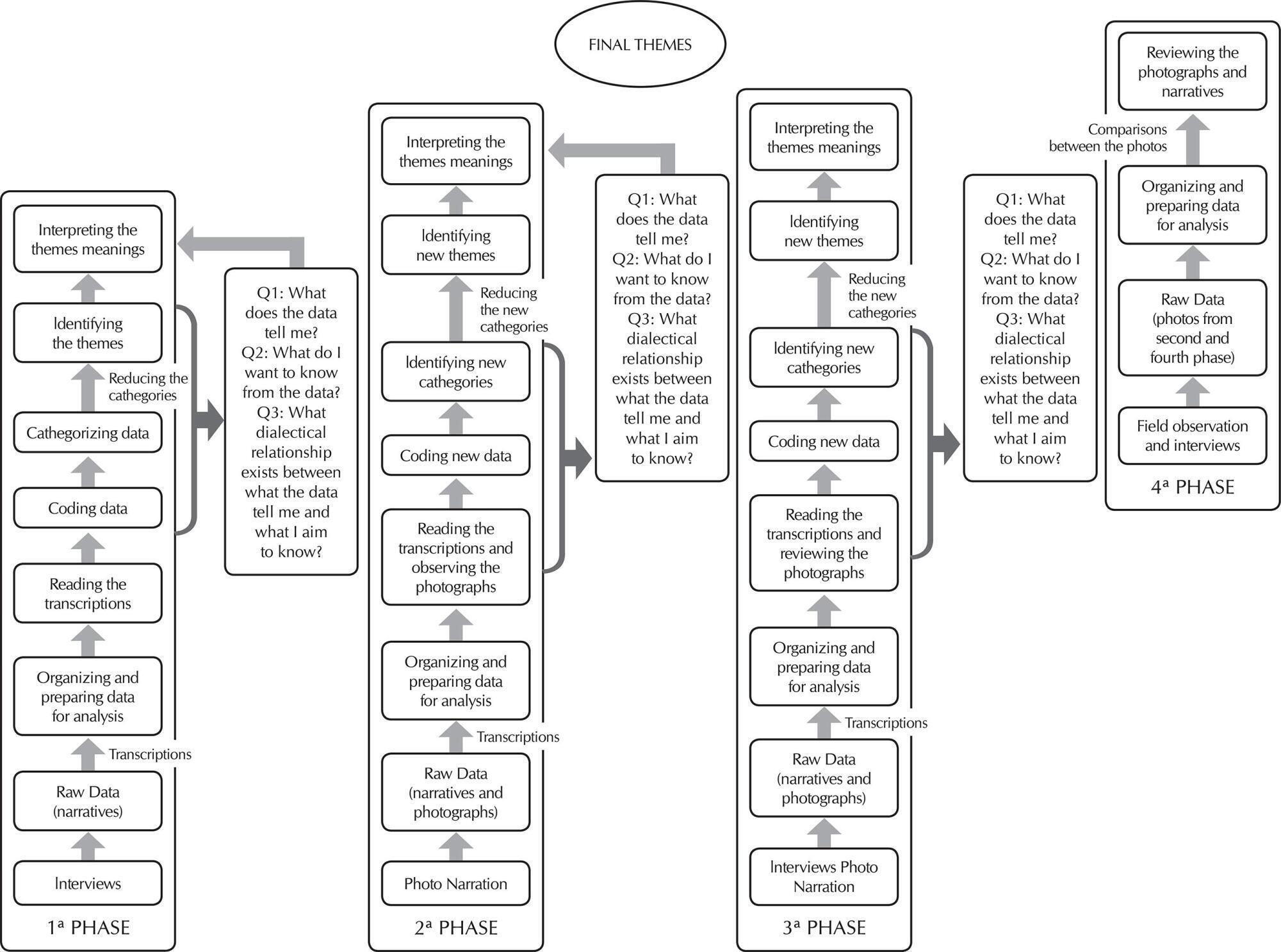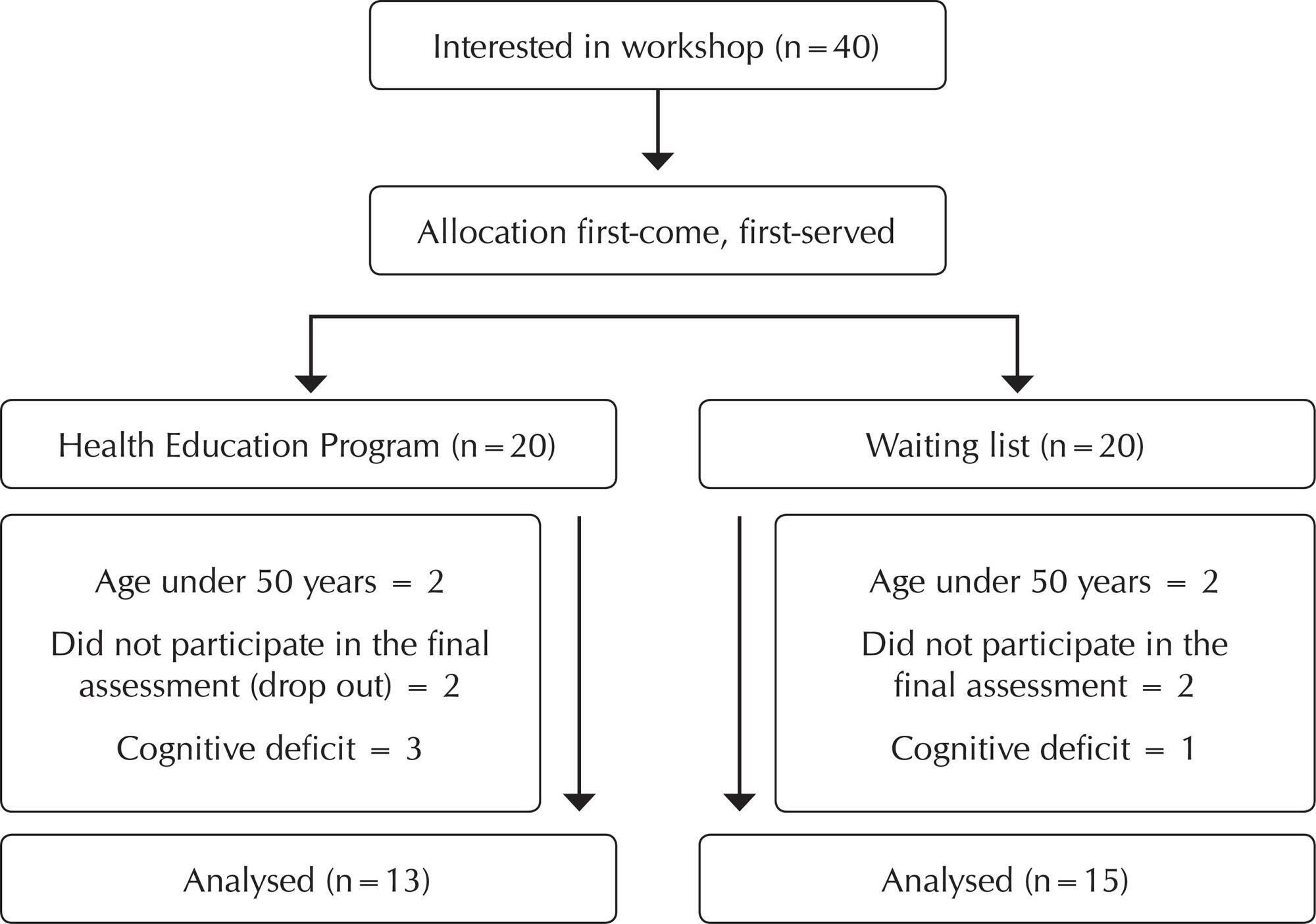-
ORIGINAL ARTICLE12-05-2019
Relationship between elderly stroke patient caregivers scale and nursing diagnoses
Revista Brasileira de Enfermagem. 2019;72:251-258
Abstract
ORIGINAL ARTICLERelationship between elderly stroke patient caregivers scale and nursing diagnoses
Revista Brasileira de Enfermagem. 2019;72:251-258
DOI 10.1590/0034-7167-2018-0787
Views0See moreABSTRACT
Objective:
To describe relationships between the ECPICID-AVC scale factors and the NANDA-I domains, classes, and Nursing Diagnoses (NDs).
Method:
Cross-mapping study between the NANDA-I taxonomy and ECPICID-AVC scale was constructed based on the eight ECPICID-AVC scale factors and the 13 NANDA-I domains. A descriptive analysis was performed to present the mapped elements.
Results:
Areas of similarity and intersection were found between the eight ECPICID-AVC factors and nine NANDA-I domains, 19 classes, and 72 NDs. All scale factors were mapped with the Domain 1/Health Promotion, Class 2/Health Management and the ND “Frail elderly syndrome”.
Final considerations:
The ECPICID-AVC scale factors were mapped with nine domains, their classes and diagnoses. This study demonstrates the importance of identifying nursing diagnoses and their relationship with factors that evaluate caregiving capacity. The ECPICID-AVC can help nurses generate nursing diagnoses regarding the caregiver’s needs and their capacities related to care to focus such needs.
-
ORIGINAL ARTICLE12-05-2019
Spirituality and religiosity for the transcendence of the elderly being
Revista Brasileira de Enfermagem. 2019;72:259-265
Abstract
ORIGINAL ARTICLESpirituality and religiosity for the transcendence of the elderly being
Revista Brasileira de Enfermagem. 2019;72:259-265
DOI 10.1590/0034-7167-2018-0840
Views0See moreABSTRACT
Objective:
to understand the life experiences that favor transcendence of the elderly being.
Method:
a qualitative phenomenological hermeneutic study, in two groups of elderly coexistence. The selection of participants was by intentional sampling: 11 elderly, achieving theoretical saturation. Data collection was carried out through a phenomenological interview with a detonating question. Ethical principles of the General Health Law in health research were fulfilled. Analysis with Heideggerian hermeneutic circle was performed.
Results:
unity of meaning on the consciousness of a higher power for transcendence is highlighted, where spirituality and religiosity are resources of the elderly for strength, feel protected, overcome difficult situations and reach fullness; both favor the understanding of their historicity by manifesting enlightenment.
Final considerations:
transcendence of the elderly being is favored with spirituality and the experiences of their daily life are imbued with a spiritual and religious relationship that give meaning to their existence.
-
01-01-2018
Case study: using participatory photographic methods for the prevention of medication errors
Revista Brasileira de Enfermagem. 2018;71(5):2483-2488
Abstract
Case study: using participatory photographic methods for the prevention of medication errors
Revista Brasileira de Enfermagem. 2018;71(5):2483-2488
DOI 10.1590/0034-7167-2017-0040
Views0See moreABSTRACT
Objective:
To describe the experience of using participatory photographic research methods to engage nurses and researchers in a collaborative study to improve medication safety conditions, particularly in patients with feeding tubes in a nursing home for the elderly (NHE).
Method:
This qualitative study was conducted in Brazil and proceeded in iterative phases of visual and textual data collection and analysis. Interviews, subsequent nurse-led photo-narrated walkabouts, and photo elicitation were used with nurses.
Results:
The need to transform the work design and the workplace to improve medication safety and improving medication processes through effective communication was identified. Unsafe workforce is a challenge in achieving safe medication administration practices; and lack of a patient safety culture is a barrier for adaptive learning and growth.
Conclusion:
Our findings demonstrated the effectiveness of a restorative research approach for supporting nurses to study and act on medication safety.

-
01-01-2017
Effects of a Health Education program on cognition, mood and functional capacity
Revista Brasileira de Enfermagem. 2017;70(4):814-821
Abstract
Effects of a Health Education program on cognition, mood and functional capacity
Revista Brasileira de Enfermagem. 2017;70(4):814-821
DOI 10.1590/0034-7167-2016-0638
Views0See moreABSTRACT
Objective:
Assess the effect of a Health Education (HE) program on cognition, mood and functional capacity of participants in a University of The Third Age (U3A).
Method:
Controlled clinical trial. The HE Program consisted of 10 sessions with group dynamics, including orientations on disease prevention and cognitive stimulation exercises, lasting four months. Intervention Group (IG) n=13; and Control Group (CG) n=15. All were assessed at the start and end of the study, using Addenbrook´s Cognitive Examination-Revised (ACE-R), Beck Depression and Anxiety Inventory (BDI/BAI) and Functional Independence Measure (FIM).
Results:
Significant improvements were observed for the IG when comparing the total ACE-R score (p=0.001) and memory domain (p=0.011) before and after the intervention. For the CG, improvement was found in the memory domain only (p=0.027).
Conclusion:
a HE intervention program benefits the improvement in cognitive performance, particularly the memory of adults and active elderly who participated in a U3A.

-
01-01-2016
Association of frailty in hospitalized and institutionalized elderly in the community-dwelling
Revista Brasileira de Enfermagem. 2016;69(4):691-696
Abstract
Association of frailty in hospitalized and institutionalized elderly in the community-dwelling
Revista Brasileira de Enfermagem. 2016;69(4):691-696
DOI 10.1590/0034-7167.2016690411i
Views0See moreABSTRACT
Objective:
to investigate the association between frailty with hospitalization and institutionalization in a follow-up study of elderly residents.
Method:
the follow-up study was performed in 2008 and 2013 with elderly of both genders, aged 65 years and older who were living in the community-dwelling. The sampling procedure performed was probabilistic, with dual-stage clustering. In 2008, 515 elderly people were interviewed and, in 2013, 262. We used the socioeconomic and demographic data, self-reported morbidity, specific data of hospitalization and institutionalization. Frailty was measured by the Edmonton Frail Scale (EFS), and functional capacity through the Functional Independence Measure.
Results:
we found the mean gross EFS score was higher among resident elderly who were hospitalized and institutionalized and was statistically significant in both investigated years.
Conclusion:
the confirmation of association between frailty and hospitalization and institutionalization reinforces the importance of the subject, and highlights frailty as an important tool for risk estimates for these adverse events.
-
01-01-2015
Family participation to elderly rehabilitation with femoral fracture
Revista Brasileira de Enfermagem. 2015;68(5):883-889
Abstract
Family participation to elderly rehabilitation with femoral fracture
Revista Brasileira de Enfermagem. 2015;68(5):883-889
DOI 10.1590/0034-7167.2015680517i
Views0See moreABSTRACT
Objective:
verify if the mode of care adopted by caregivers favored functional independence recovery by elderly with and without the presence of nervous system disease and mental and behavioral disorders; and, if disease interfered with their functional independence.
Method:
transversal study, with 12-month follow-up of 89 Brazilian elders (≥ 60 years) after proximal femoral surgery, and their family caregiver.
Results:
the Functional Independence Measure scores decreased by 0.7 points per year of life, and in the case of presenting nervous system disease and mental and behavioral disorders, this loss amounted to 20.5 points.
Conclusion:
The incentive to ambulate increased by 18.8 for self-care, 12.8 for self-care, and 11.5 for leisure activities on the Functional Independence Measure. Encouraging movement and ambulation, self-care and leisure activities, especially with those elderly with nervous system diseases and mental and behavioral disorders, is recommended.



